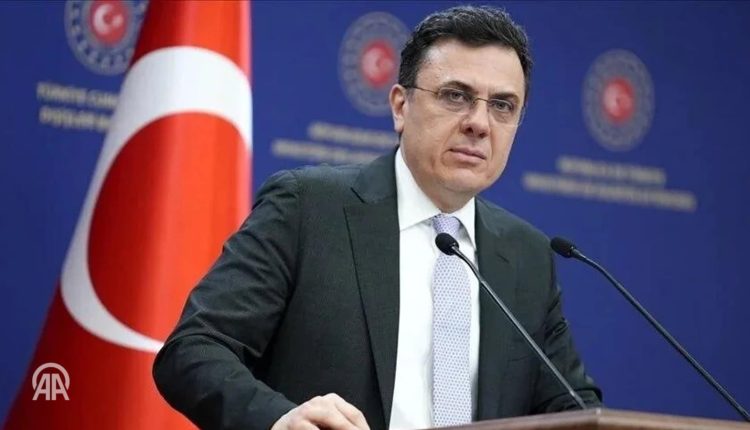Turkey Expresses Concern Over Northwest Syria Amid Gains by Turkish-Backed Factions
DAMASCUS, Syria (North Press) – Turkey’s Foreign Ministry on Friday expressed concerns over escalating clashes in northwest Syria, where Hayat Tahrir al-Sham (HTS) and other Turkish-backed factions have launched a major offensive against Syrian government-controlled territories in the Aleppo and Idlib countryside.
In a statement, Turkish Foreign Ministry spokesperson Oncu Keçili said, “We are closely monitoring the recent developments in northwest Syria, as they directly concern Syria’s unity and territorial integrity.”
HTS-Led Offensive
Since Wednesday, HTS, formerly known as Jabhat al-Nusra, and other factions supported by Turkey have made significant advances, reportedly capturing dozens of villages, towns, and parts of Aleppo city. The attacks have dealt a substantial blow to government forces in the region, according to local sources.
Despite Turkey’s public statements advocating stability, all factions involved in the current offensive, including HTS, receive military and logistical support from Ankara. This has raised questions about Turkey’s role in fueling the unrest in the already volatile region.
Keçili stressed that Ankara prioritizes the preservation of peace in Idlib and the areas along its border with Syria. “Ensuring stability in Idlib and adjacent areas at the zero point of our border remains a critical issue for Turkey,” he said.
Violations of Agreements
The Turkish official also criticized violations of the Astana agreements, which were brokered by Turkey, Russia, and Iran to reduce violence in Syria.
“We have issued repeated warnings about the attacks on Idlib, which have reached a level that undermines the spirit and functioning of the Astana agreements. These violations are causing significant civilian suffering and destabilizing the region,” Keçili stated.
While Ankara’s calls for adherence to the agreements highlight its desire to project a stabilizing role, its support for HTS and other factions contradicts these assertions, as they continue to expand their operations under Turkish patronage.
Strategic Implications
Turkey’s dual role—as both a backer of opposition factions and a guarantor of ceasefire agreements—has fueled criticism from observers and stakeholders. Its support for groups like HTS has emboldened these factions to pursue aggressive territorial expansion at the expense of the Syrian government, further complicating the region’s delicate balance of power.
Keçili underscored Turkey’s interest in maintaining stability but warned that continued conflict could exacerbate tensions. “The clashes in recent days have led to an undesirable increase in tensions. We urge all parties to honor their commitments to avoid further escalation,” he added.
Humanitarian Concerns
The escalation in northwest Syria threatens to worsen the humanitarian crisis in Idlib, already one of the world’s most densely populated displacement zones. With millions of civilians living in dire conditions, any further violence could result in significant displacement and casualties.
As HTS and Turkish-backed factions consolidate their gains, Turkey’s statements of concern will likely be scrutinized for their apparent contradictions. The situation remains precarious, with the potential for further escalation in the coming days.

